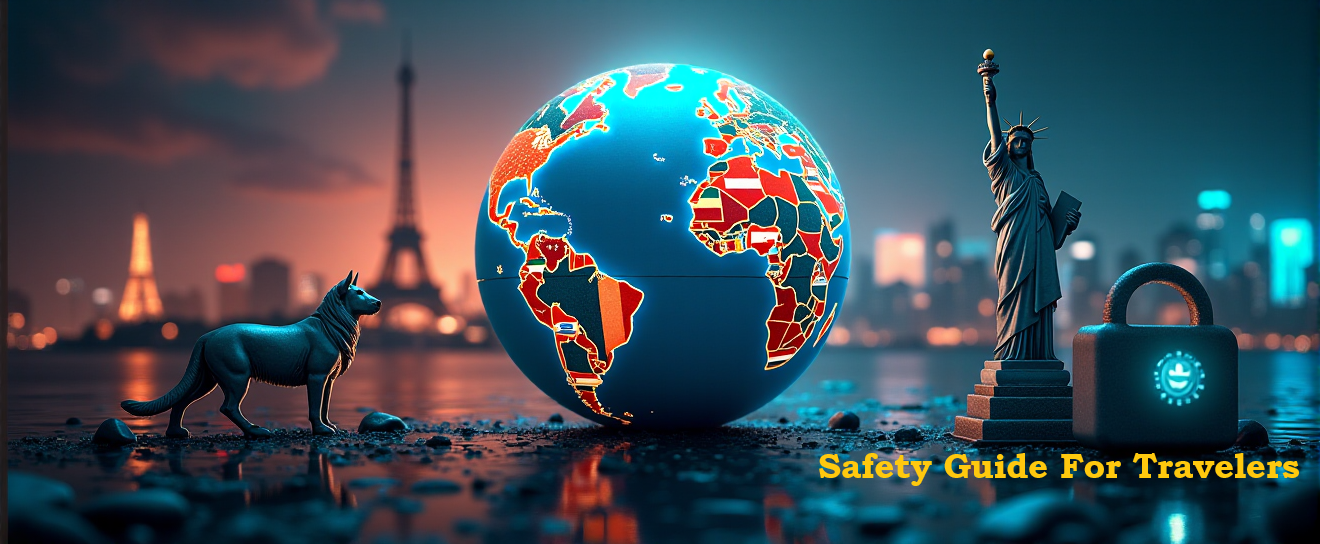Aruba, known for its stunning beaches and vibrant culture, is a popular travel destination in the Caribbean. While the island is generally considered safe for tourists, it is crucial to remain aware of personal and financial safety while exploring its beautiful landscapes and attractions. This article will cover essential safety aspects, tips to avoid common scams, insights into crime rates, and specific safety considerations for popular locations in Aruba.
Overview of Safety in Aruba
Aruba boasts a reputation as one of the safest islands in the Caribbean, attracting millions of visitors each year. The crime rate is relatively low, especially in tourist areas like Palm Beach and Eagle Beach. However, like any travel destination, it is essential to exercise caution and be aware of your surroundings. Petty crimes such as pickpocketing and theft can occur, particularly in crowded areas or nightlife hotspots.
The island’s small size makes it easy to navigate, but visitors should still be mindful of their safety when exploring less populated areas or venturing out at night. Understanding local customs and laws can also enhance your travel experience while ensuring your safety.
Emergency Contact Numbers
In case of emergencies while in Aruba, travelers should be aware of the following contact numbers:
- Police: 911
- Ambulance: 911
- Fire Services: 911
These numbers are essential for any urgent assistance needed during your stay.
Safety Tips for Travelers
General Precautions
- Stay Aware of Your Surroundings: Always be conscious of your environment, especially in crowded places like markets or nightlife areas.
- Secure Your Belongings: Use anti-theft bags or money belts to keep valuables close. Avoid leaving bags unattended on the beach or in vehicles.
- Use Licensed Taxis: Only use official taxis to avoid being overcharged; agree on a fare before starting your journey.
- Limit Night Travel: If possible, avoid walking alone at night, particularly in poorly lit areas or neighborhoods known for higher crime rates.
Common Scams and Tourist Traps
- Pickpocketing: Be cautious in busy tourist spots where pickpockets may operate. Keep your belongings secure and avoid displaying valuables.
- Overcharging: Some vendors may attempt to overcharge tourists for goods or services. Always confirm prices before purchasing.
- Unlicensed Guides: Be wary of individuals offering unsolicited tours; they may not be legitimate guides.
Location-Specific Safety Concerns
- Palm Beach: This area is generally safe but can become crowded during peak tourist seasons. Remain vigilant against petty theft.
- San Nicolas: Known for its nightlife, this area has some sketchy neighborhoods that may not be safe for solo travelers at night. It’s advisable to go in groups and stay aware of your surroundings.
- Baby Beach: While beautiful, this remote beach requires a car to access. Ensure you have a reliable map or GPS as it can be easy to get lost.
Crime Overview
While violent crime is rare in Aruba, petty crimes such as theft do occur. Tourists should take standard precautions to protect themselves and their belongings:
- Avoid walking alone in remote areas at night.
- Do not take valuables or large amounts of cash to the beach.
- Keep bags closed and secure at all times.
Driving Safety
Driving in Aruba is generally safe, but there are some considerations:
- Road Conditions: Roads are well-maintained, but caution is advised when driving at night due to limited street lighting.
- Traffic Laws: Familiarize yourself with local traffic laws; drinking and driving is strictly enforced with severe penalties.
- Public Transport: Taxis are available but confirm fares beforehand as they do not use meters.
Health Considerations
Aruba has a high standard of healthcare services; however, travelers should still take precautions:
- Drink tap water safely; Aruba has an excellent desalination system that provides clean drinking water.
- Protect yourself from sun exposure by using reef-safe sunscreen as per local regulations that prohibit harmful chemicals.
Natural Hazards
Aruba is outside the hurricane belt but can experience tropical storms during hurricane season (June to November). Travelers should monitor weather reports and be prepared for sudden changes in weather conditions.
Women’s Safety
Women traveling alone may encounter some forms of harassment or verbal abuse. It’s advisable for women to dress conservatively and remain aware of their surroundings. Traveling in groups or using reputable transportation services can enhance safety.
Conclusion
Aruba offers a wealth of experiences for travelers seeking sun-soaked beaches and cultural immersion. By taking necessary precautions regarding personal safety and being aware of potential risks such as scams and natural hazards, visitors can enjoy their journey without undue concern. Whether relaxing on the pristine shores or exploring local attractions, staying informed will enhance your travel experience while ensuring your personal and financial safety throughout your visit to this enchanting island paradise.


![Poland [Country Info]](https://globleo.com/wp-content/uploads/2024/11/flag_of_the_country_Poland_PL.png)
![Qatar [Country Info]](https://globleo.com/wp-content/uploads/2024/11/flag_of_the_country_Qatar_QA.png)